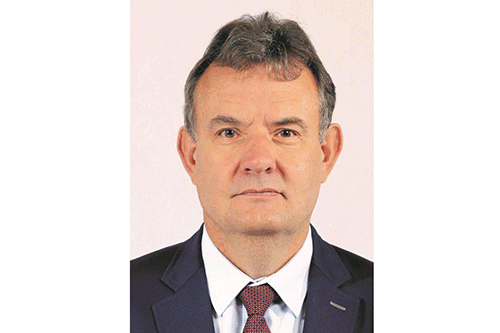Lahja Nashuuta
Namibians will begin receiving electronic identity cards (e-IDs) from July 2026. According to the Ministry of Home Affairs, Immigration, Safety and Security, the new ID system aims to improve identity verification and simplify access to both public and private services.
The e-ID is a smart card, similar to a bank card, embedded with a chip that stores personal data such as a photo, fingerprints, and other biometric information making it highly secure and difficult to forge.
Executive director Etienne Maritz described the rollout as a major step toward digital transformation.
“The e-ID is more than just a new card. It’s a gateway to inclusion in our digital future,” he said in an interview with New Era. Maritz explained that the e-ID would help curb identity fraud, eliminate duplicate records, and streamline identification for job applications, healthcare, education, banking, voting and government services.
Communities in rural and remote areas will also benefit. Mobile units will be dispatched to bring registration and verification services directly to these areas, reducing the need for long travel, Maritz assured.
“The e-ID will make it easier to register births and apply for social grants among others from the most remote corners of the country,” said Maritz.
Engaging the public
To prepare for the launch, the ministry is kicking off a public awareness campaign starting in the Khomas region. One of the key events, the “Un-Conference on Digital Legal Identity” will be held in Windhoek on Thursday, 26 June 2025.
“This isn’t a typical conference. It’s a platform for open dialogue where people can ask questions and get straight answers from officials,” Maritz noted.
Over 500 participants, including Windhoek residents, local councillors and senior officials, are expected to attend. The aim is to ensure the public is fully informed and comfortable with the new ID system.
“Change always brings uncertainty. That’s why we’re engaging early and openly to make sure no one is left behind,” he added.
He described the e-ID initiative as part of a broader strategy to modernise government services, promote digital access, and enhance regional integration through easier travel across SADC countries.
“This is an investment in Namibia’s future. It will ensure that every citizen, regardless of location, can securely access services and seize



